Welcome back to This Week in Apps, the new Extra Crunch series where we’ll help you keep up with the latest news from the world of apps — including everything from the OS’s to the apps that run upon them, as well as the money that flows through it all.
The app industry in 2018 saw 194 billion downloads and over $100 in consumer spending. Beyond that, the business of user acquisition and advertising generates even more money. And all because we’re spending more time on our phones than we do watching TV.
This week, the news was centered on the app stores’ ability to censor, the censorship in apps, and also how the antritrust investigations are forcing companies to open up access more to third parties.
Headlines
Third-party iOS apps will get to tap into Siri
According to Bloomberg and confirmed elsewhere, Apple will allow third-party messaging and phone apps to work better with the Siri digital assistant. That means, if you regularly use WhatsApp to message friends, Siri will launch that app instead of iMessage. Currently, you have to say the name of the app you want to invoke. The update is largely about Apple’s attempt to demonstrate anti-competitive behavior, in light of increased regulatory scrutiny and antitrust claims. But the change will also be a huge win for consumers as their iPhones will become more personalized to them.
The problem with TikTok, the most downloaded app in the world
The lighthearted app seems to have a dark side: censorship. The hugely popular Chinese-owned social media app has come under fire for banning pro-LGBT content and other topics, like Tiananmen Square, Tibet, and the Hong Kong protests. Now its hundreds of millions of users are left to grapple with the question — are we still allowed to have fun on an app that doesn’t support our democratic values and freedom of speech? (TikTok also doubled down on its “we’re just for fun vibe” later in the week by reiterating its ban on political ads.)
Apple targets emerging markets with new iOS 13 feature
Apple now has a feature called “Low Data Mode” in iOS 13, which allows users to limit the amount of data their apps use — ideal for use in emerging markets, or anywhere else where bandwidth is an issue. The feature, available in iOS’s Settings app, users can communicate to their apps that they want their data demands to slow down. But it’s up to app developers to support this new user preference. Donny Walls has penned a useful blog post on how to go about doing just that.
Google launches Action Blocks — like Siri Shortcuts, but accessibility-focused
Maybe Google doesn’t foresee mainstream adoption of a shortcuts-building tool, which is why its new “Action Blocks” tool is focused on improving accessibility. The tool lets you create shortcuts for multi-step tasks with the help of Google Assistant. Google’s research found that 80% of people with severe cognitive disabilities, like advanced dementia, autism or Down syndrome, don’t use smartphones, in part because of accessibility issues. Action Blocks may help.
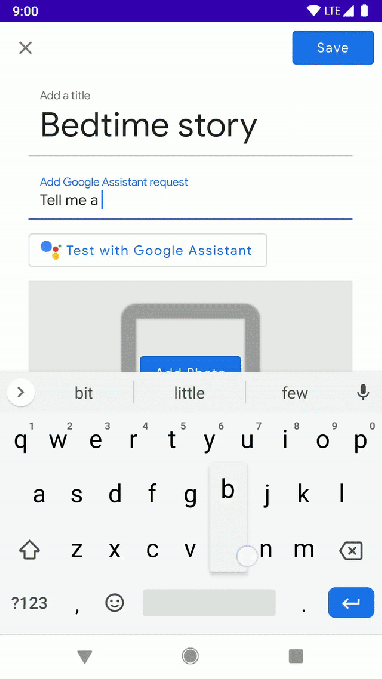
Where’s Google Play Pass for Android TV?
Hey, good point. The folks at TalkAndroid noted another huge difference between Google’s version of Apple Arcade and its own Google Play Pass subscription — no support for the big screen. “This whole thing just feels like a half-baked attempt to stay competitive with Apple Arcade,” says TalkAndroid’s Jared Peters, adding that Apple Arcade works across platforms — including phones, tablets, and TV.
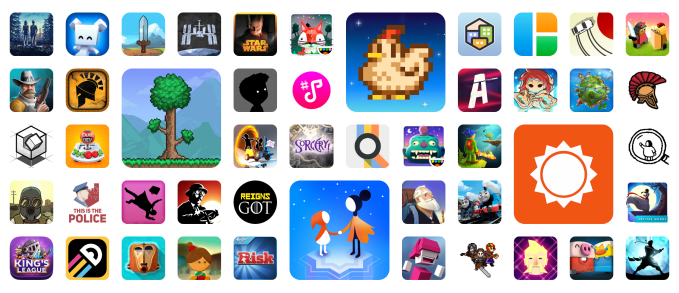
The default app on Android phones is changing — bye, bye Google Play Music
This big move missed the cutoff for the last round-up, but last Friday, Google announced that YouTube Music would now become the default music player on new Android devices, replacing Google Play Music. The plan is still to transition users entirely, but only after reaching feature parity with Play Music. That means, according to YouTube CPO Neal Mohan speaking this week at TechCrunch Disrupt: the ability to have a locker with personal music files, the ability to play local audio files on your Android device, and the ability to transfer your playlists from Google Play Music to the YouTube Music app.
For the wider ecosystem of music apps, the move means you’ll want to add YouTube Music to your list of connections, and your radar.
Is it malice or incompetence?
The latest app to get the App Store banhammer was HKmap Live, an app that allowed people to track police activity in a map interface. But Daring Fireball’s John Gruber questions whether this is truly an example of Apple bowing to Chinese government pressure, or just another example of a poorly run App Store review process. Sure, the decision to reject the new app from being listed could have been a rogue decision on the part of a single app review team member. But doesn’t absolve Apple from not having a policy in place around such a thing. Apple should know whether or not it, as a company, wants to allow apps like HKmap Live to exist. And if not, it needs to be prepared for the criticism. (Apple decided to publish the app, after all, following the media backlash.)
Consumers spent a record $23 billion in apps in Q3
How good are subscriptions? For developers, very very good, it seems. According to the latest numbers from App Annie there were over 31 billion app downloads worldwide in Q3 2019, up 10% year-over-year. But consumer spend was up by 20% to a record $23 billion. Outside of games, popular subscription-based apps helped to push this latter number higher, with apps in categories like Photo & Video, Entertainment, and Music leading the way.
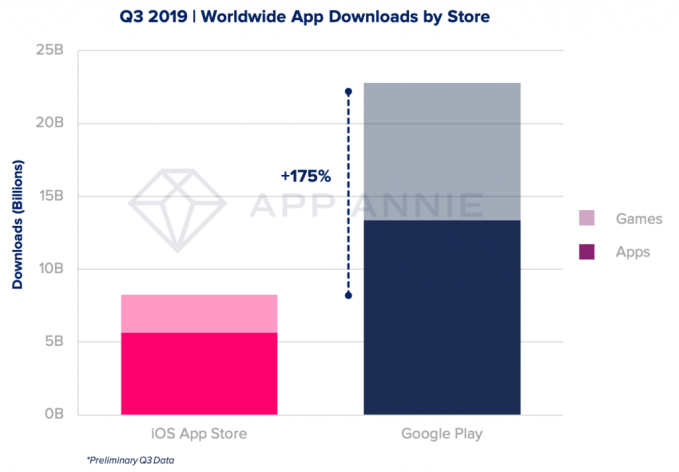
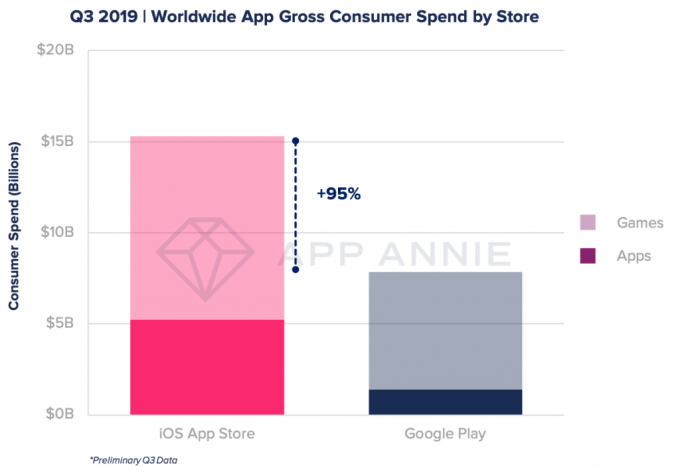
Downloads
App of the Week: Halide
It’s not new, but it is updated for iOS 13. This excellent camera app for iPhone users now supports the iPhone 11 and 11 Pro with tons of new features, including a tactile lens switcher (long press on the lens button), lens guides for help composing shots, and smart RAW mode.
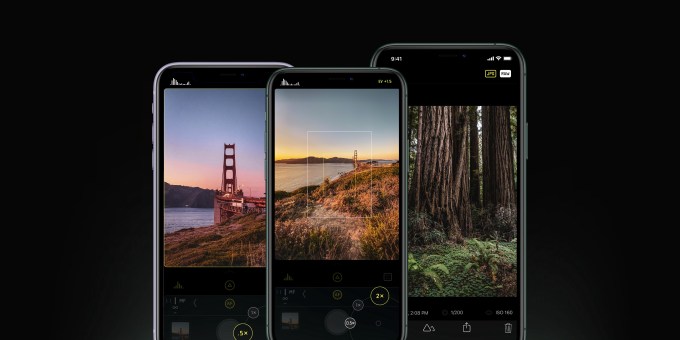
Game of the Week: Call of Duty Mobile
The game launched on October 1, and within three days became the top-ranked app after 35 million downloads across iOS and Android. Within its first week, it reached 100 million downloads — a record for first-week downloads. PUBG, Fortnite and Electronic Arts’ “Apex Legends” scored 26.3 million, 22.5 million and 25 million respectively in their first week of release, Reuters reported.
Runner-Up: Mario Kart Tour
Guess what just became Nintendo’s most popular mobile game launch ever? With 20 million day-one downloads, Mario Kart Tour raced past Nintendo’s previous launches, reports Sensor Tower. It even saw triple the downloads of Super Mario Run, which grabbed 7 million users within 24 hours of launch — and that game had been available for pre-order, a first for the App Store.
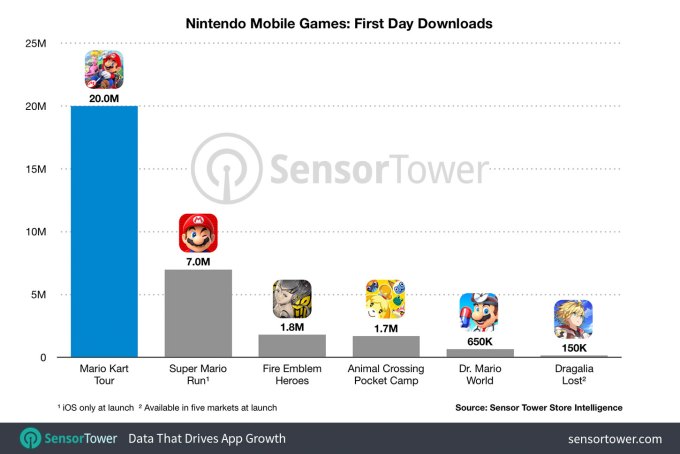
Long Read: Why Apple Arcade will push mobile gaming in the right direction
AppleInsider’s Amber Neely makes the case for Arcade’s larger effects on the overall gaming industry, noting the potential benefits to indie game studios and bigger studios alike.
Tweet of the Week:
Great thread on how the subscription business model allows developers to run sustainable businesses. Consumers, however, got used to free and low-cost apps — asking them to now pay can be a challenge, at times. App developers will have to clearly communicate the value their app brings and what the subscription delivers.